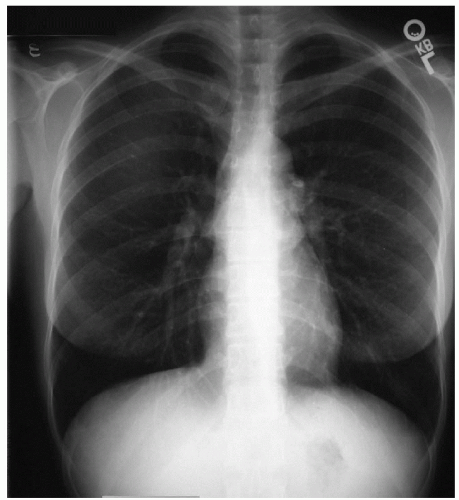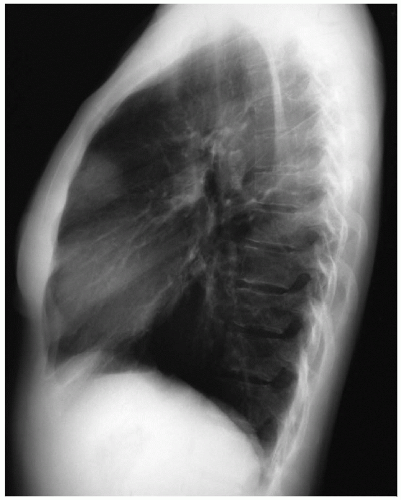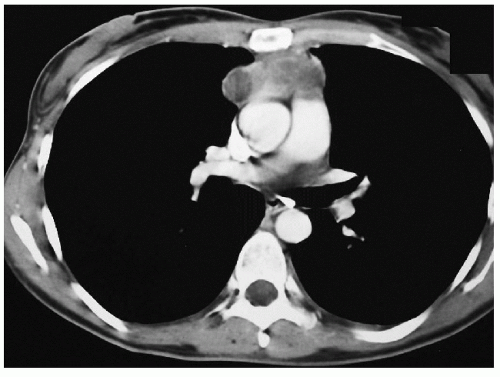Lymphoma
Presentation
A 43-year-old woman comes to your office with a 4-week history of fever and night sweats accompanied by a 10-pound weight loss. She has no significant past medical or surgical history and is a nonsmoker.
Differential Diagnosis
The anterior mediastinum is bordered superiorly by the innominate vessels and inferiorly by the diaphragm. The anterosuperior aspect of the heart divides the anterior from the middle mediastinum. The contents of the anterior mediastinum include connective, lymphatic, and fatty tissues in addition to blood vessels, the thymus gland, and occasionally, parathyroid and thyroid tissue.
The most common anterior mediastinal tumor is a thymoma, which accounts for about half of all mediastinal tumors in adults. The next most prevalent mediastinal tumor is lymphoma, which includes Hodgkin’s and non-Hodgkin’s types, and is the most common of all mediastinal neoplasms. Germ cell tumors are also typically found in the anterior mediastinum and include teratoma, seminoma, choriocarcinoma, yolk sac tumor, and embryonal carcinoma. Thyroid masses, such as thyroid goiter or neoplasm, can also be present. Other tumors, such as thymic carcinoid, thymic cyst, thymolipoma, parathyroid adenoma, lymphangioma, hemangioma, fibroma, and fibrosarcoma, are less common histologic types of tumors that may be found in the anterior mediastinum.
Recommendation
Complete physical examination with careful attention to axillary and supraclavicular lymphadenopathy or other masses, and a testicular examination in men. Also, serologic tumor markers, such as a-fetoprotein, b-human chorionic gonadotropin, and lactate dehydrogenase, should be obtained. Computed tomography (CT) scans of the chest to delineate the mass and evaluate the status of intrathoracic lymphadenopathy are also necessary.
Test Results
The physical examination reveals no enlarged lymphadenopathy or masses. Serologic markers are negative. ▪






